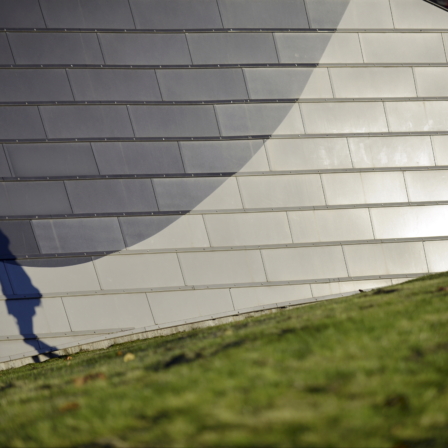In an increasingly complex and uncertain world, policymaking has to become a continuous, experimental and collective learning process, argues Timo Hämäläinen in our Weekly Notes blog.
The historical evolution of civilisations has been characterised by growing specialisation and the division of physical and intellectual labour. Every now and then, this evolution has been interrupted by a governance crisis when the established organisational and institutional arrangements have become insufficient to deal with the ever-increasing complexity of human interactions.
Some complexity scientists use the term “complexity gap” for this situation. Today’s societies are, again, experiencing a complexity gap. There are serious governance problems at all levels of our societies: individuals suffer from growing life-management problems, corporations struggle to adapt their rigid hierarchies, governments run from one crisis to another and multinational institutions make very little progress in solving global problems. A transition to the next phase of societal development requires closing the complexity gap with new governance innovations. Or else societies may face disintegration and chaos.
The complexity gap is not limited to governance arrangements. The growing specialisation of scientific disciplines and the rapid transformation of societies have created a “knowledge gap” between the ever more complex and uncertain world and the narrow, specialised scientific knowledge about it. This knowledge gap raises a fundamental question: how well can we understand a world that consists of numerous highly complex and uncertain systems with reductionist science that focuses on particular phenomena and neglects their interdependencies with other parts of the system? This is the question that led Sitra to explore the theme of second order science (SOS), which takes the complexity of the world as its starting point.
Together with International Futures Forum, Sitra organised a workshop with some of the leading thinkers and policy practitioners in this emerging field in order to make sense of and synthesise the potential contributions of SOS to the future of scientific research and public policy. Drawing on the excellent synthesis of the mastermind and facilitator of the workshop, Anthony Hodgson, I would reinterpret the key lessons learned about SOS from the complexity perspective in the following way.
In SOS, the researcher is never just a detached and neutral observer of the system under study but is a participant in the system whose subjective choices and assumptions influence the research results which, in turn, shape the system in one way or another. This kind of social constructivism is acknowledged in some parts of the social sciences but it is rarely discussed in natural sciences. Moreover, the limited individual cognitive frames and disciplinary paradigms tend to narrow the researcher’s focus on certain issues and perspectives while excluding others. The established scientific infrastructures may further constrain the scope of the inquiry. These cognitive and physical limits result in partial views of the complex reality.
Besides being an observer, the researcher is also a participant and decision-maker who intervenes in the system by introducing and promoting certain ideas. He or she has an impact on the system. For example, influential economists shape policymaking with their theories and statements. This underlines the importance of the researcher’s values and ethics. Science and knowledge are not value-neutral.
The growing specialisation and differentiation of phenomena emphasises their uniqueness. The dominance of quantitative analysis, statistical averages and the assumption of normal distribution become problematic in highly specialised and complex systems. Unique phenomena and contexts call for qualitative research that is sensitive to contextual differences as well as local and practical knowledge. Successful approaches cannot be simply scaled to other contexts because these contexts differ. They can only be “spread” and adapted to new contexts.
SOS overcomes the problem of reductionism by integrating many different perspectives and types of knowledge in understanding a phenomenon. This requires multi-stakeholder dialogues that can achieve transdisciplinary syntheses. Organising and facilitating such dialogues is a key challenge for policymaking in the future. In an increasingly complex and uncertain world, policymaking has to become a continuous, experimental and collective learning process.
After a long history of specialisation and differentiation, the traditional discipline-bound science needs to be complemented by a more holistic, integrating and participatory approach to knowledge creation – second order science.



Recommended